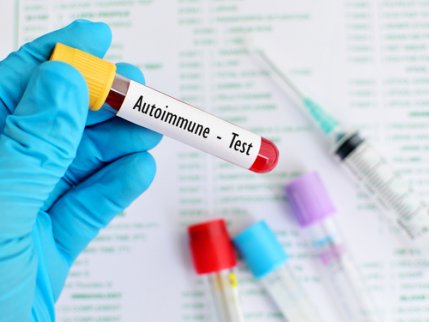하이드로코르티손 또는 코르티솔은 부신에서 생성되는 호르몬이다. 코르티솔 과다 분비는 건강에 영향을 미칠 수 있다. 코르티솔은 혈당치를 높이며 뼈 형성을 줄이고 비만 같은 질병을 유발할 수 있다.
코르티솔 과다 분비는 고코르티솔증이나 쿠싱 증후군으로도 알려져 있다. 이 질병은 지방의 축적, 고혈압 및 높은 신체 스트레스를 일으킨다.
다음과 같은 징후는 체내에 과도한 양의 코르티솔이 있는지를 알 수 있도록 도움을 줄 것이다.
코르티솔 과다 분비 증상 6가지
1. 급격한 체중 증가
체중 증가는 높은 코르티솔 수치의 첫 증상 중 하나이다. 지방이 어깨, 가슴, 등과 같은 부위에 쌓이기 시작하기 때문에 특히 상반신이 두드러진 변화를 경험한다.
매우 이상한 점은 팔과 다리에는 살이 붙지 않는다는 것이다.
2. 피부 증상

코르티솔 과다 분비는 피부에도 영향을 줘서 다음과 같은 피부 질환이 발생할 수 있다.
- 여드름
- 가슴, 복부 및 허벅지에 생기는 보랏빛 병변
- 멍
- 얼굴 털과 몸털이 풍성해짐
3. 근골격계 증상
높은 코르티솔은 근육과 뼈에도 영향을 미쳐서 뼈 구조를 약하게 하며 특히 갈비뼈와 척추에 골절 위험이 커진다.
참고하면 좋을 글: 골다공증에 대해 알아야 할 6가지 사실
4. 면역체계 이상

면역체계를 조절하는 흉선도 코르티솔 과다 분비의 영향을 받는다.
높은 코르티솔은 세포의 죽음을 초래하며 면역체계가 바이러스 대신 신체 조직을 공격하게 만든다.
- 면역체계의 가장 흔한 증상은 천식과 알레르기이다.
- 루푸스, 크론병 또는 섬유 근육통으로 악화할 수도 있다
5. 우울증과 기분 변화
불안은 스트레스를 많이 받을 때 나타나는 가장 흔한 증상이다.
온종일 갑작스럽게 기분이 바뀌면서, 심각한 우울증 징후가 나타날 수도 있다.
높은 코르티솔 수치가 혈류와 뇌로 공급되는 포도당을 감소한다는 연구 결과가 있다. 뇌세포가 포도당을 흡수하는 능력을 방해하며 일부 세포를 죽게 할 수도 있다.
더 읽어 보자: 스트레스와 피로를 줄여주는 10계명
6. 피로와 불면증

코르티솔이 제공하는 에너지는 몸에 역효과를 낳을 수 있다.
몸이 온종일 과도하게 활동하며 휴식을 취하지 않는다. 밤새도록 과잉 분비된 호르몬 때문에 긴장을 풀고 잘 수가 없다.
- 정상적인 조건에서 체내 코르티솔 수치는 에너지 공급을 위해 오전 8시에 높아지기 시작한다.
- 쿠싱 증후군 환자는 반대로 밤에 수치가 올라가기 시작한다.
코르티솔 수치를 낮추는 방법
체내 코르티솔 수치를 낮춰 건강한 삶을 살기 위한 몇 가지 방법을 소개한다.
커피 끊기
카페인은 코르티솔 수치를 시간당 최소 30% 정도 증가하게 하는 경향이 있으며 그 효과가 18시간 동안 지속할 수도 있다.
이화작용 물질대사를 낮추고 동화작용 물질대사를 높이고 싶다면 커피와는 작별하자.
수면 시간 늘리기

자기 전에 카밀러나 서양 쥐오줌풀을 달인 차를 마시며 수면 주기를 개선하자. 이렇게 하면 신체는 더 빠르고 오랫동안 수면을 취할 수 있을 것이다.
좋은 수면은 신체의 코르티솔 수치를 낮추는 것 외에도 어리고 건강해 보이는 모습을 제공하며 세월의 영향을 최소화할 수 있을 것이다.
운동하기
규칙적인 운동은 세로토닌 및 도파민의 생성을 높이고 근육량을 늘려 불안이나 우울증이 발생할 위험을 낮춰준다.
또 운동을 통해 체내에 축적되는 과도한 에너지를 더 많이 태우고 코르티솔 수치를 낮출 수도 있을 것이다.
혈당치를 안정적으로 유지하기
탄수화물, 단백질 및 섬유질이 풍부한 식사를 통해 혈당치를 관리하자.
비타민 B, 칼슘, 마그네슘, 크롬, 아연, 비타민 C 및 알파 리포산(ALA)과 같은 보조제 먹기를 권장된다.
참고 문헌
모든 인용된 출처는 품질, 신뢰성, 관련성 및 유효성을 보장하기 위해 저희 팀이 철저히 검토했습니다. 이 글의 참고 문헌은 신뢰할 수 있으며 학문적 또는 과학적 정확성을 갖춘 것으로 간주되었습니다.
- Amasi-Hartoonian, N., Sforzini, L., Cattaneo, A., & Pariante, C. M. (2022). Cause or consequence? Understanding the role of cortisol in the increased inflammation observed in depression. Current Opinion in Endocrine and Metabolic Research, 24, 100356. https://www.ncbi.nlm.nih.gov/pmc/articles/PMC7612780/
- Badrick, E., Bobak, M., Britton, A., Kirschbaum, C., Marmot, M., & Kumari, M. (2008). The Relationship between Alcohol Consumption and Cortisol Secretion in an Aging Cohort. The Journal of Clinical Endocrinology & Metabolism, 93(3), 750-757. https://www.ncbi.nlm.nih.gov/pmc/articles/PMC2266962/
- Çay, M. (2017). The Effect of Cortisol Level Increasing Due to Stress in Healthy Young Individuals on Dynamic and Static Balance Scores. Northern Clinics of Istanbul. https://pubmed.ncbi.nlm.nih.gov/30859159/
- Chen, Y., & Lyga, J. (2014). Brain-Skin Connection: Stress, Inflammation and Skin Aging. Inflammation & Allergy-Drug Targets, 13(3), 177-190. https://www.ncbi.nlm.nih.gov/pmc/articles/PMC4082169/
- Chiodini, I., Scillitani, A. (2008). Role of cortisol hypersecretion in the pathogenesis of osteoporosis. Recenti Prog Med, 99(6), 309-13. https://pubmed.ncbi.nlm.nih.gov/18710063/
- Choe, S. J., Kim, D., Kim, E. J., Ahn, J. S., Choi, E. J., Son, E. D., Lee, T. R., & Choi, E. H. (2018). Psychological Stress Deteriorates Skin Barrier Function by Activating 11β-Hydroxysteroid Dehydrogenase 1 and the HPA Axis. Scientific Reports, 8(1). https://www.ncbi.nlm.nih.gov/pmc/articles/PMC5910426/
- Dziurkowska, E., & Wesolowski, M. (2021). Cortisol as a Biomarker of Mental Disorder Severity. Journal of Clinical Medicine, 10(21), 5204. https://www.ncbi.nlm.nih.gov/pmc/articles/PMC8584322/
- DiNicolantonio, J. J., Mehta, V., Onkaramurthy, N., & O’Keefe, J. H. (2018). Fructose-induced inflammation and increased cortisol: A new mechanism for how sugar induces visceral adiposity. Progress in Cardiovascular Diseases, 61(1), 3-9. https://pubmed.ncbi.nlm.nih.gov/29225114/
- Haddad, C., Courand, P. Y., Berge, C., Harbaoui, B., & Lantelme, P. (2021). Impact of cortisol on blood pressure and hypertension-mediated organ damage in hypertensive patients. Journal of Hypertension, 39(7), 1412-1420. https://pubmed.ncbi.nlm.nih.gov/33534343/
- Hertel, J., König, J., Homuth, G., Van der Auwera, S., Wittfeld, K., Pietzner, M., Kacprowski, T., Pfeiffer, L., Kretschmer, A., Waldenberger, M., Kastenmüller, G., Artati, A., Suhre, K., Adamski, J., Langner, S., Völker, U., Völzke, H., Nauck, M., Friedrich, N., & Grabe, H. J. (2017). Evidence for Stress-like Alterations in the HPA-Axis in Women Taking Oral Contraceptives. Scientific Reports, 7(1). https://www.nature.com/articles/s41598-017-13927-7
- Hewagalamulage, S., Lee, T., Clarke, I., & Henry, B. (2016). Stress, cortisol, and obesity: a role for cortisol responsiveness in identifying individuals prone to obesity. Domestic Animal Endocrinology, 56, S112-S120. https://pubmed.ncbi.nlm.nih.gov/27345309/
- Hackett, R. A., Dal, Z., & Steptoe, A. (2020). The relationship between sleep problems and cortisol in people with type 2 diabetes. Psychoneuroendocrinology, 117. https://www.ncbi.nlm.nih.gov/pmc/articles/PMC7302424/
- Kamba, A., Daimon, M., Murakami, H., Otaka, H., Matsuki, K., Sato, E., Tanabe, J., Takayasu, S., Matsuhashi, Y., Yanagimachi, M., Terui, K., Kageyama, K., Tokuda, I., Takahashi, I., & Nakaji, S. (2016). Association between Higher Serum Cortisol Levels and Decreased Insulin Secretion in a General Population. PLOS ONE, 11(11), e0166077. https://www.ncbi.nlm.nih.gov/pmc/articles/PMC5115704/
- Jones, C., & Gwenin, C. (2020). Cortisol level dysregulation and its prevalence—Is it nature’s alarm clock? Physiological Reports, 8(24). https://pubmed.ncbi.nlm.nih.gov/33340273/
- Lovallo, W. R., Whitsett, T. L., al’Absi, M., Sung, B. H., Vincent, A. S., & Wilson, M. F. (2005). Caffeine Stimulation of Cortisol Secretion Across the Waking Hours in Relation to Caffeine Intake Levels. Psychosomatic Medicine, 67(5), 734-739. https://www.ncbi.nlm.nih.gov/pmc/articles/PMC2257922/
- Lee, D. Y., Kim, E., & Choi, M. H. (2015). Technical and clinical aspects of cortisol as a biochemical marker of chronic stress. BMB Reports, 48(4), 209-216. https://www.ncbi.nlm.nih.gov/pmc/articles/PMC4436856/
- Paragliola, R. M., Corsello, A., Papi, G., Pontecorvi, A., & Corsello, S. M. (2021). Cushing’s Syndrome Effects on the Thyroid. International Journal of Molecular Sciences, 22(6), 3131. https://pubmed.ncbi.nlm.nih.gov/33808529/
- Peeters, G. M. E. E., van Schoor, N. M., van Rossum, E. F. C., Visser, M., & Lips, P. (2008). The relationship between cortisol, muscle mass and muscle strength in older persons and the role of genetic variations in the glucocorticoid receptor. Clinical Endocrinology, 69(4), 673-682. https://www.ncbi.nlm.nih.gov/pmc/articles/PMC7302424/
- Thau L, Gandhi J, Sharma S. Physiology, Cortisol. In: StatPearls [Internet]. Treasure Island (FL): StatPearls Publishing; 2022 Jan-. Available from: https://www.ncbi.nlm.nih.gov/books/NBK538239/
- Uwaifo GI, Hura DE. Hypercortisolism. [Updated 2022 Jul 4]. In: StatPearls [Internet]. Treasure Island (FL): StatPearls Publishing; 2022 Jan-. Available from: https://www.ncbi.nlm.nih.gov/books/NBK551526/
- Vargas, I., Vgontzas, A. N., Abelson, J. L., Faghih, R. T., Morales, K. H., & Perlis, M. L. (2018). Altered ultradian cortisol rhythmicity as a potential neurobiologic substrate for chronic insomnia. Sleep Medicine Reviews, 41, 234-243. https://pubmed.ncbi.nlm.nih.gov/29678398/
- Walter, K. N., Corwin, E. J., Ulbrecht, J., Demers, L. M., Bennett, J. M., Whetzel, C. A., & Klein, L. C. (2012). Elevated thyroid stimulating hormone is associated with elevated cortisol in healthy young men and women. Thyroid research, 5(1), 1-6. https://link.springer.com/article/10.1186/1756-6614-5-13
- Woldeamanuel, Y. W., Sanjanwala, B. M., & Cowan, R. P. (2020). Endogenous glucocorticoids may serve as biomarkers for migraine chronification. Therapeutic Advances in Chronic Disease, 11, 204062232093979. https://www.ncbi.nlm.nih.gov/pmc/articles/PMC7495027/
- Sánchez, G. (2023). 5 consejos para tener un sueño reparador. La Mente es Maravillosa. Consultado el 28 de septiembre de 2023. https://lamenteesmaravillosa.com/5-consejos-para-tener-un-sueno-reparador/
- Mayo Clinic. (2023).Síndrome de Cushing. Consultado el 28 de septiembre de 2023. https://www.mayoclinic.org/es/diseases-conditions/cushing-syndrome/diagnosis-treatment/drc-20351314
- Sabater, V., & De Dios González, S. (2014). ¿Qué ocurre en nuestro cerebro cuando sufrimos estrés? La Mente es Maravillosa. Consultado el 28 de septiembre de 2023 https://lamenteesmaravillosa.com/que-ocurre-en-nuestro-cerebro-cuando-sufrimos-estres/
- Cuevas, G. S. (2016). La ansiedad y el estrés, nuestros peores enemigos. La Mente es Maravillosa. Consultado el 28 de septiembre de 2023. https://lamenteesmaravillosa.com/la-ansiedad-estres-peores-enemigos/

